It’s one thing learning in principle how to create a campaign to counter disinformation, but it’s another when you’re under pressure and dealing with a real-life crisis.
Three journalist-campaigners talk honestly about the issues they have faced trying to get clear and reliable information to their communities during the COVID-19 pandemic.
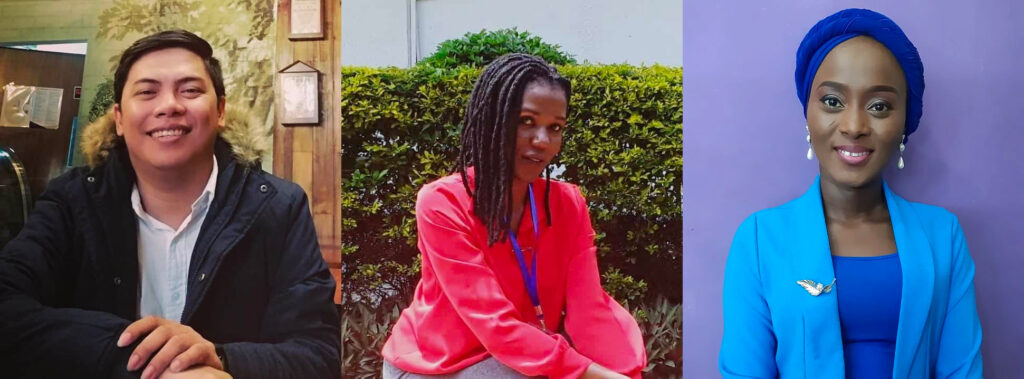
John David Moncada teaches communication courses at the University of Science and Technology of Southern Philippines. During the COVID-19 crisis, he’s been focused on his home village.
“It’s very important that information should be conveyed in very simple terms these days. At the onset of the outbreak I was pushing hard in my social media groups not to accept information that might be harmful. That’s become a habit now in my circle; people are really very cautious about information. So now people ask when someone shares – is this false, where does it come from? It’s gone into their consciousness that there’s a lot of misinformation around online.
When our village community went into quarantine, I went around and talked to people directly about how they felt. I read that the numbers of cases, of deaths and disease, will go up and down – but the precautionary measures won’t change; it’s still stay home, maintain social distancing. Despite the curfew at 9 pm, sometimes there are young people who stay outside, hanging out, getting into trouble. I felt there must be something I can do to encourage people to respect the stay home protocol, so I started the ’Stay Home, Make Memories’ campaign on social media.
Filipinos are family-orientated; reunions, birthdays, anniversaries are all a family thing. The pandemic was a perfect moment to encourage people to get in touch with family members when in quarantine and to make things together with their direct family members. Make memories while having to stay home. And in our culture, teachers are very well respected, and people listen to them. So, I asked teachers what memorable things they had done at home, and by sharing their stories, inspired others. The idea is: you’re not being stopped from having fun, home is the place for creating something good. I posted to the private Facebook group for my village with 19,000 members, and I can say it was very successful based on the numbers of positive reactions I got.
As a bonus I also worked to increase the membership of the local government’s Facebook group through the ‘Stay Home Make Memories’ short videos I made. It’s now ten times larger with more than 4000 members.”
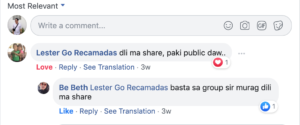
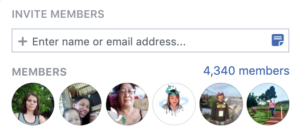
Jenipher Asiimwe is a journalist and host on Ugandan public radio.
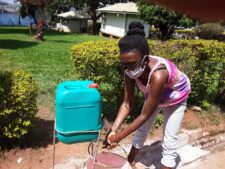
“I’ve always specialised in reporting on water, sanitation, gender and the environment. So I thought, why can’t I do something? I started a sanitation campaign on handwashing across Africa. Most Africans don’t have access to running water. Especially at home. Most people were not washing their hands until this pandemic. Now I go to a grocery store or a public office and I see people have started washing their hands. Traditionally people don’t see soap as so important in their hygiene. I post about the benefits of using ordinary soap. It’s one of the cheapest things people have here. I tell people on the radio or social media that ordinary soap is the cheapest and best way to protect yourself.
It’s been one of the most exciting posts I ever put onto social media because people reacted asking me all about ordinary soap. Most people believed that luxury soaps for the rich would be better, not just ordinary soap that poor people can afford. So, when I posted the basic information on my timeline – and on broadcast media, people were so surprised. So amazing! People are now so attentive to the radio news bulletins. At the end of the news, I tell them to wash their hands – that your health is your responsibility.
I’ve contacted colleagues from Nigeria, Zambia, Mozambique and South Africa to tell me how it’s going in their countries and I share the news back on a regular radio show. I spoke to a Zimbabwe radio station about the situation in Uganda and I used the opportunity to talk again about hand washing.”
Olasumbo Modupe is a Broadcast Journalist with Lagos Television, Lagos Nigeria.



“When it started, I began some basic information campaigns: video for TV and online platforms, graphics to share on social media and audio for radio. I speak English, Yoruba and a bit of Pidgin myself. We have different languages here in Nigeria, especially here in Lagos State, the epicentre of this pandemic. We need to come to level of the grassroots, use their language. I asked some of my colleagues and they assisted me with translation and narration in the different languages.
I do a daily report updating people on the statistics and what efforts the government is making. I also have a weekly report with an interview with a public health practitioner and a section about the misconceptions around COVID-19. We see so many people telling you once you take garlic or ginger in the morning, you’ll be fine. My mum is typical of a lot of people that are not sure actually what is happening. They believe in different conspiracy theories due to social media. We have lots of messages flying around on social media – like the 5G conspiracy. Some people believe the government just want to use the pandemic to get funds from world health leaders. I tell her: you know you should not believe everything you see on your WhatsApp groups or messages. Sometimes she’ll come up with so many theories that I tell her: you know what, this is what is actually going on. What I tell you is fact.
When an expert talks about COVID-19 they should do away with all the medical jargon and come down to the level of members of the public. One problem here is, we don’t really have videos or pictures of people who’ve been affected. When the chief of staff was infected and died, most people still think it was a lie. So many misconceptions.
It is very very difficult to achieve more. What we actually need here is to see patients for testimonies, this will help flatten the curve as well as stop stigmatisation and improve adherence to precautionary measures. Even If I’m not allowed into the isolation centres, I’m hoping I can get a patient or survivors to share their experience on Zoom.”
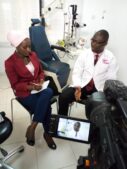
These interviews were originally published at rnw.org. All interviewees attended the RNTC course Media Campaigns for Development and Social Change on scholarships from the Orange Knowledge Programme, funded by the Netherlands Ministry of Foreign Affairs and managed by Nuffic Global Development.